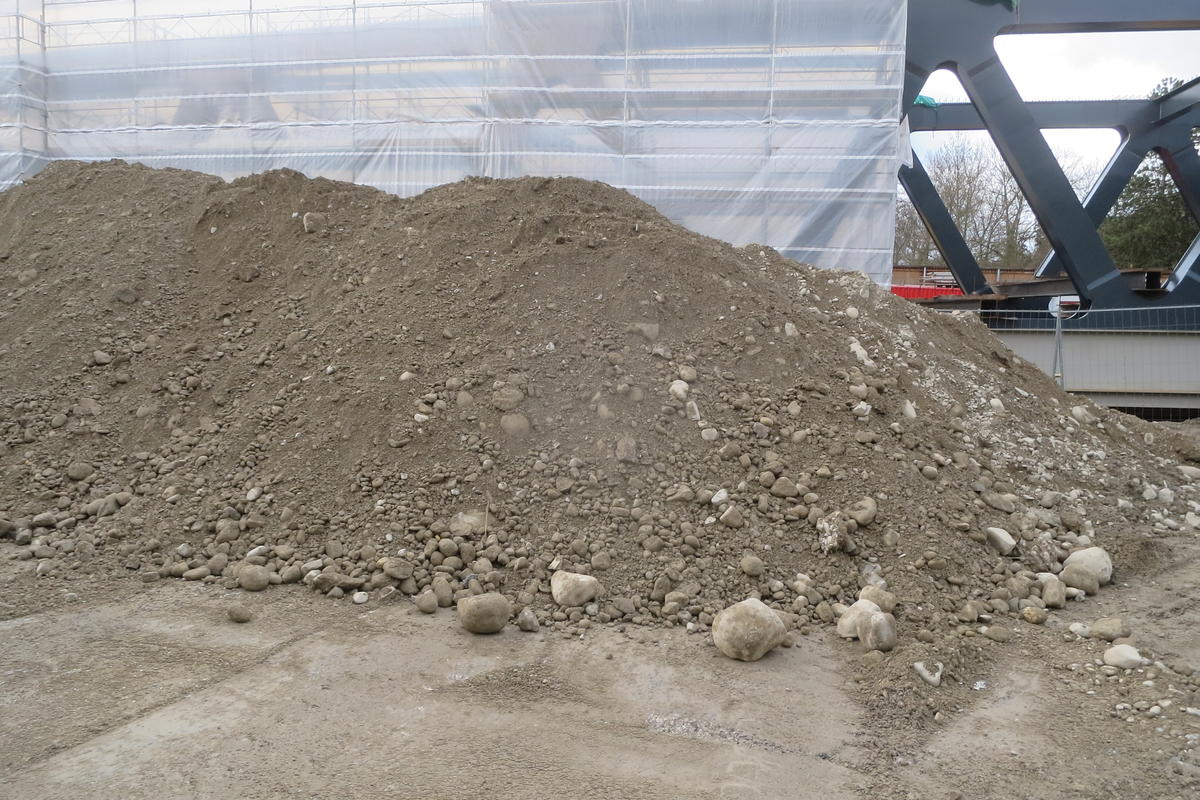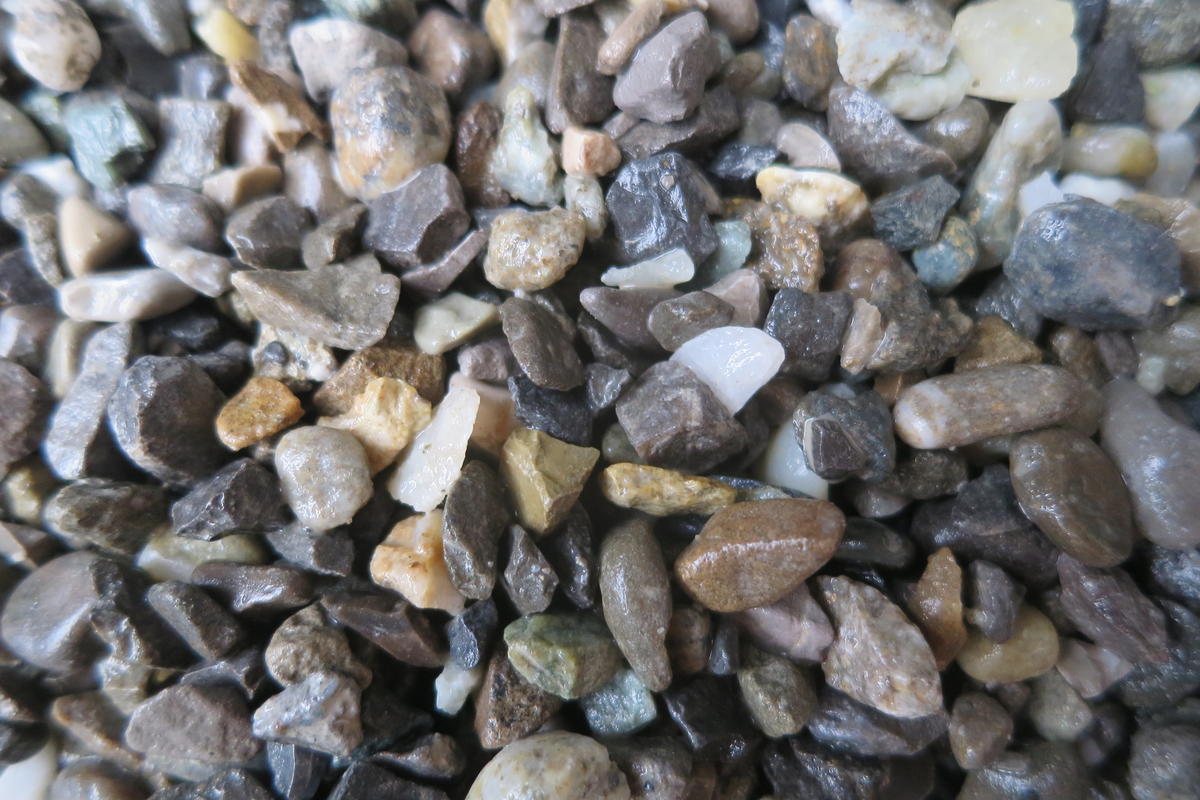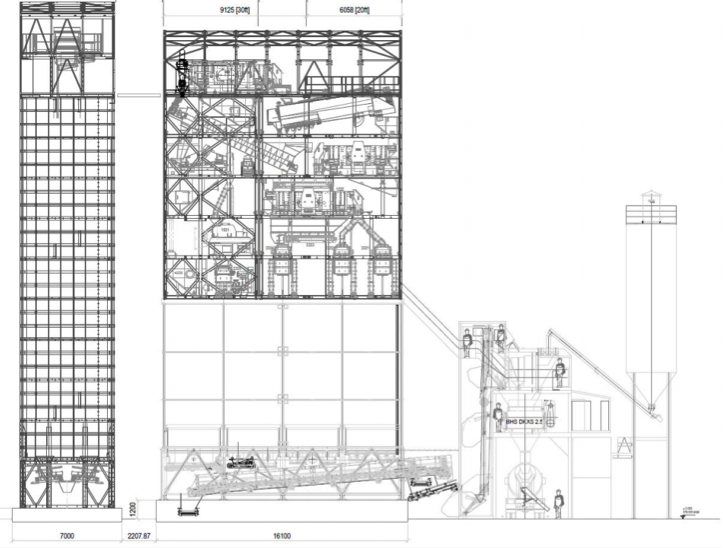The centre for recycling excavated material from the Champel tunnel (CEVA project) by the Marti SA
Project details
The Champel tunnel, one of the key features of the future Cornavin - Eaux-Vives - Annemasse (CEVA) railway line requires the excavation of approximately 200,000 m3 of alluvial material over a length of 1,630 meters (including the Champel-Hôpital station).
The site must comply with environmental requirements for the site, which is located in an urban area, including the limits to be respected in terms of traffic, noise and dust generation and keeping dumping of excavated material in landfill sites to a minimum. To comply with these instructions, Marti has installed a plant for recycling excavated materials in situ.
To make it more profitable, the plant is designed to be reused on other sites. It can be taken apart in the form of containers to make it easier to move.
The recycling plant first transforms the excavated material into aggregates, which are then used to make concrete for use on the tunnel site. To do this, the materials are first put through two stages of crushing, and then a washing/screening phase. The water used in this process is also recycled. The aggregates are then used to produce certified concrete.
The plant can handle 200t/hr, recycling 120 t/hr and producing 60 m3/hr of concrete.
The whole process takes place on site, without obstructing roads and respecting the environmental requirements stated above.
Qualitative benefits
- 200,000 m3 of excavated materials that are not sent to landfill sites.
- 270,000 tons of aggregates supplied via the excavated material recycling process.
- Approximately 200,000 km of transport to supply aggregates avoided
Stages of the initiative
The site must comply with environmental requirements for the site, which is located in an urban area, including the limits to be respected in terms of traffic, noise and dust generation and dumping excavated material in landfill sites. These environmental instructions encouraged Marti to develop a plant for recycling excavated materials in situ.
Areas of activity
The total project duration is 5 years (2013-2017). The recycling plant was commissioned in July 2014. Dismantling is planned for late 2017. Installation and commissioning lasted 6 months.
Name of financier
http://www.martitechnik.com/de/unternehmen/anlagenbau-steine-erden/details?referenceID=54http://www.vsb-astb.ch/images/upload/20150821%20-%20Visite%20ASTB_858.pdf




